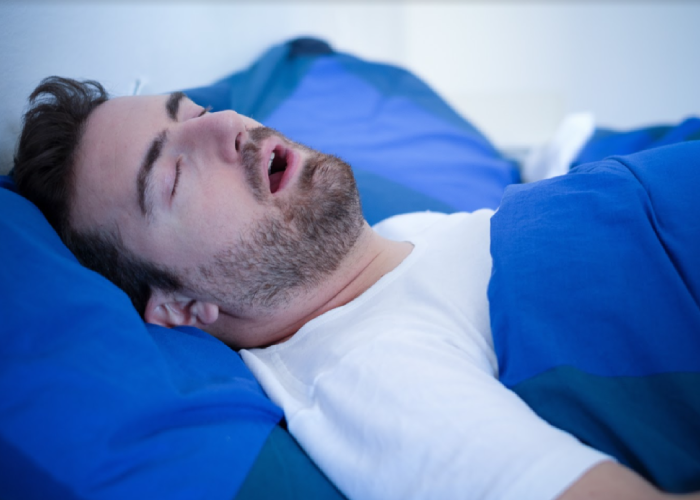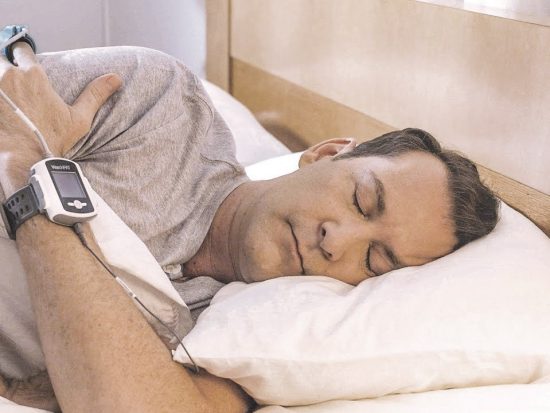Sometimes known as hypersomnia, many of us are prone to oversleeping. Oversleeping is typically defined as consistently sleeping significantly more than the recommended amount. There can be numerous underlying causes, such as depression, narcolepsy, sedating medications, heart diseases, irregular sleep schedules and problems with the thyroid gland. Regardless of what might trigger this condition, the associated side effects can be serious.
Why do people oversleep?
Sleeping too much can be caused by numerous factors, which could indicate an underlying condition.
One typical example is the physical stress our bodies endure daily.
For example, those employed in the construction sector are likely to require more time for their bodies to heal on a nightly basis compared to those working in an office environment.
Illness and stress will likewise affect our sleeping patterns. Those recovering from an ailment might need more rest as their bodies are still healing. Furthermore, anyone experiencing a significant amount of stress could also need more time to “recharge their batteries” due to the debilitating impacts of these emotions on the body.
Other variables that can influence our sleeping habits include:
- Diet
- The consumption of stimulants or sedatives
- Certain types of prescription medications
- Environmental factors such as temperature and humidity
Health risks of oversleeping
Here are some health risks and dangers that can develop by oversleeping:
- Diabetes: Those who are overweight and oversleep are at a heightened risk of type two diabetes as fatigue can cause low blood sugar levels.
- Social impairment: Oversleeping can interfere with a person’s social life and work responsibilities. Missing appointments, showing up late for work or social engagements, and decreased productivity are common consequences.
- Obesity: Some studies have suggested a link between oversleeping and weight gain or obesity. The reasons for this association are complex and may be related to metabolism and physical activity changes.
- Inflammation: Chronic oversleeping may contribute to inflammation in the body. Inflammation is a known factor in the development of atherosclerosis (the buildup of plaque in arteries) and other cardiac-related conditions.
- Disrupted Circadian Rhythms: Oversleeping can disturb your body’s circadian rhythms, which regulate various physiological processes, including the cardiovascular system. Irregular sleep patterns can lead to an increased risk of cardiac issues.
- Heart disease: Sleeping for an excessive amount of time causes the body to go into a state of stress, increasing c-reactive protein levels (CRP), a key inflammation marker linked to heart disease.
- Metabolic disorder: Different metabolic conditions are linked to frequent sleepiness; these include Gaucher’s disease, Hemochromatosis and Phenylketonuria (PKU).
- Chronic headaches: Headaches are associated with oversleeping, as the body is constantly starved of hydration and food, causing headaches.
- Depression: Oversleeping is sometimes a symptom of depression. People who experience depression may be more likely to engage in unhealthy behaviours, such as overeating or lack of exercise, which can further increase the risk of heart disease.
- Difficulty concentrating: Excessive sleep can impair cognitive function, leading to problems with concentration, memory, and decision-making.
- Low energy & sleepiness: Ironically, oversleeping can lead to increased daytime sleepiness and grogginess. People who oversleep may feel sluggish and have difficulty staying awake and alert during the day.
- Underlying Medical Conditions: Chronic oversleeping could indicate an underlying medical condition, such as Sleep Apnoea. Sleep Apnoea involves repeated pauses in breathing during sleep, leading to oxygen deprivation and increased strain on the heart.
- Hypothyroidism: Thyroid imbalances are linked to excessive sleepiness; hypothyroidism is the leading cause of hypersomnia.
- Bruxism: Bruxism, also known as teeth grinding or teeth clenching can lead to sleep disturbances for both the person experiencing it and, often, their sleep partner due to the noise and motion associated with teeth grinding. These disruptions may lead to fragmented or shallow sleep, resulting in a reduced sleep quality. In some cases, people with bruxism may wake up multiple times during the night without realizing it, potentially causing them to feel like they need more sleep or leading to excessive daytime sleepiness, which could be perceived as oversleeping.
- Chronic pain: Physical issues such as lower back pain can also signify oversleeping as the body tends to remain in a fixed position for unnaturally long periods.
How long should I sleep?
Most of us have heard that sleeping between seven and nine hours every night will produce the most optimal health benefits. However, this is only partially true. The amount of rest that we require will also depend upon our age.
Sleeping helps restore damaged tissues, produce essential nutrients, and maintain mental equilibrium. For example, infants can often sleep between 17 and 19 hours daily. Sleeping like this is understandably vital, as their bodies are growing extremely fast.
As we age, sleeping patterns tend to change. When we reach adulthood (older than 25 years), most individuals will require between seven and nine hours of rest. This number only slightly decreases (between seven and eight hours) for those who are over the age of 65.
How to stop oversleeping
The sleep you gain at night influences the day ahead and helps your brain consolidate memories and regenerate. Here are a few things you can do to adjust your sleeping pattern:
- Create a bedtime routine: sleeping at the same time every night will help your body adjust.
- Create a good sleep environment: Keeping your room dark at night and putting down your devices will allow you to unwind. Blue light from electronics makes it harder to sleep as it prevents the sleep hormone from working.
- Avoid having a lay-in: Staying in bed longer on the weekends may feel beneficial, but it can be detrimental to your sleep routine. Try to get out of bed at the same time as you do in the week.
- Create healthy eating habits: Different foods and drinks can alter your sleeping patterns.
- Avoid naps: Napping throughout the day can make you feel more tired, leading to oversleeping. If you find it hard to stay awake, it could be a sign of an underlying condition, such as a sleep disorder.
- Regularly exercise: Exercising throughout the day can improve your sleep and mood.
Oversleeping and Obstructive Sleep Apnoea
Sleep disorders are commonly associated with oversleeping and excessive daytime sleepiness due to the lack of sleep. It can make you feel constantly tired no matter how much you sleep. Obstructive Sleep Apnoea (OSA) is one of the most common types of sleep disorders. OSA causes repeated breathing pauses throughout sleep and
symptoms of include:
- Choking during sleep
- Morning headaches
- Nocturia
- Waking up tired
- Snoring
- Cognitive problems
It has been found that a short sleep duration, defined as less than seven hours, raised people’s risk for death by 12 percent and people who slept more than eight or nine hours a night were 30 percent more at risk(1).
Discovering the Root Cause
One of the most confounding issues associated with oversleeping is that such a pattern can be difficult to break without obtaining the advice of a professional; this is why the first step is to consult an expert. They can help you identify the cause . You can then begin to make proactive changes over time, which will help you start the path to recovery.
If you have symptoms of OSA, take our in-home sleep test. The test is a quick way to determine if you have the condition from the comfort of your home.
To order the In-Home Sleep Test: www.sleeptest.co.uk/in-home-sleep-test/
REFERENCES
- AASM Sleep Education. (2022, September 30). Mortality study warns against abnormal sleep lengths. Sleep Education. https://sleepeducation.org/mortality-study-warns-against-abnormal-sleep-lengths/. Accessed: 15.09.2023








